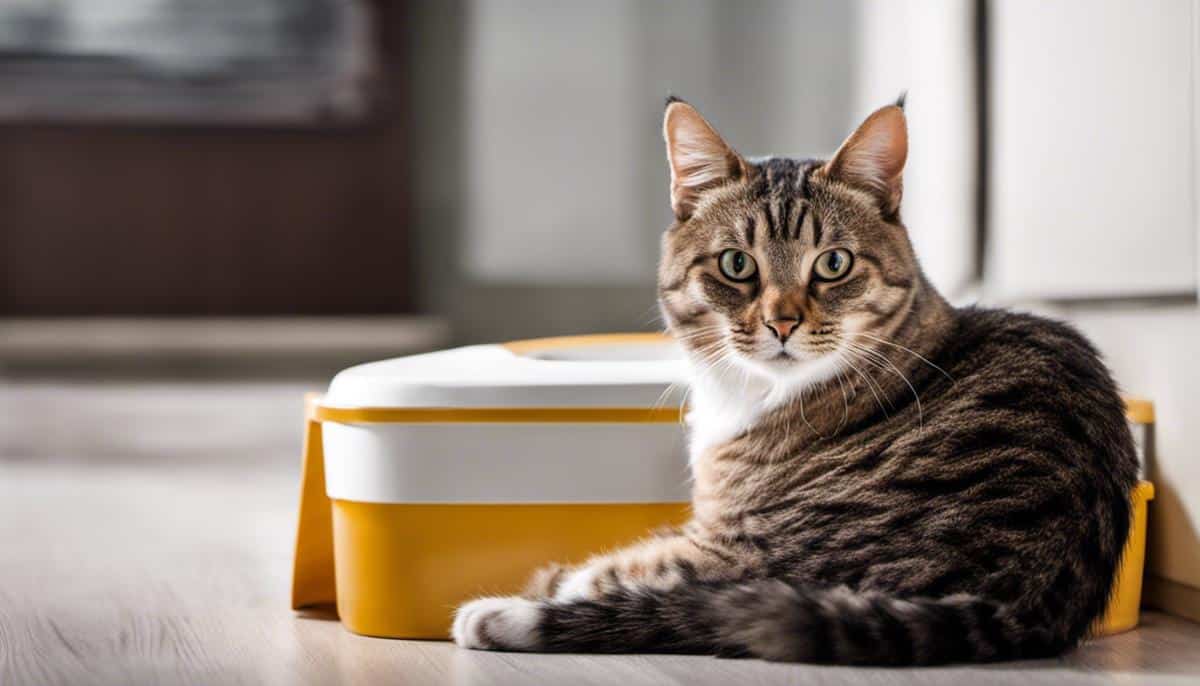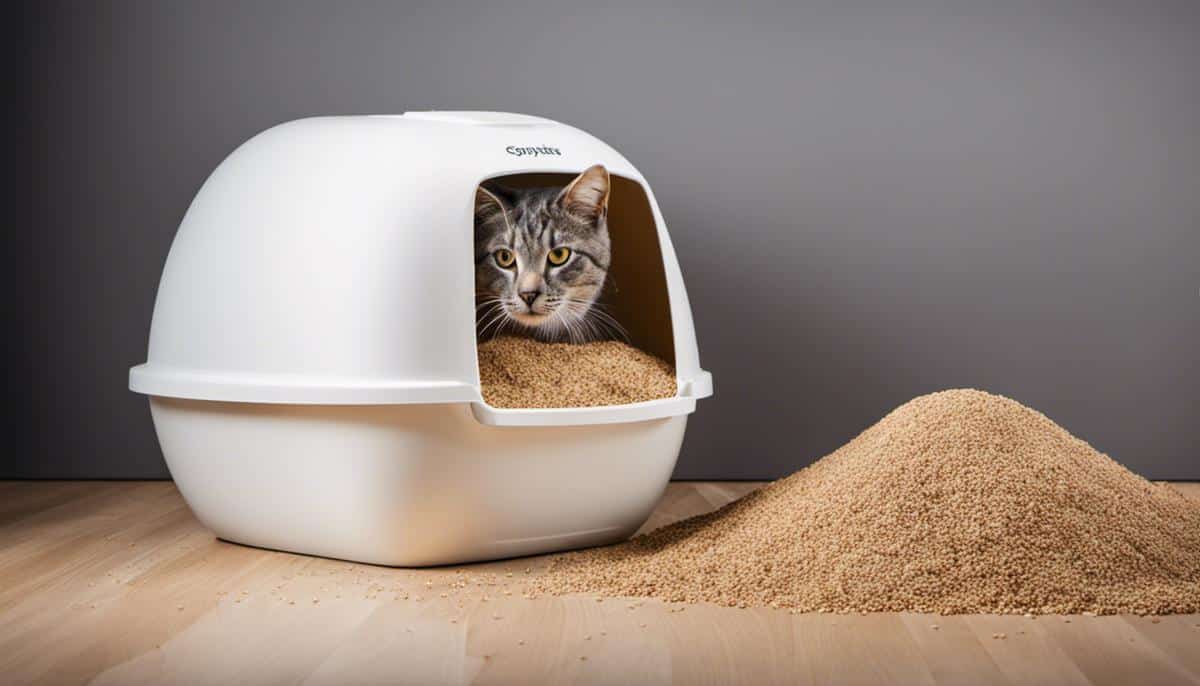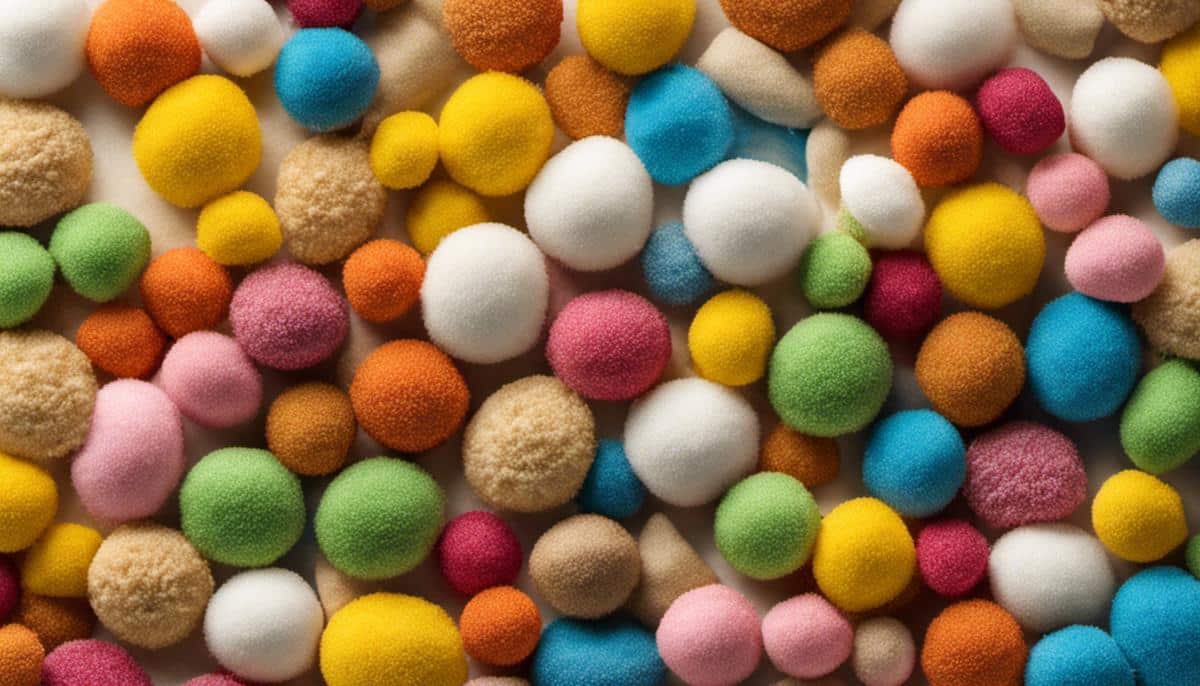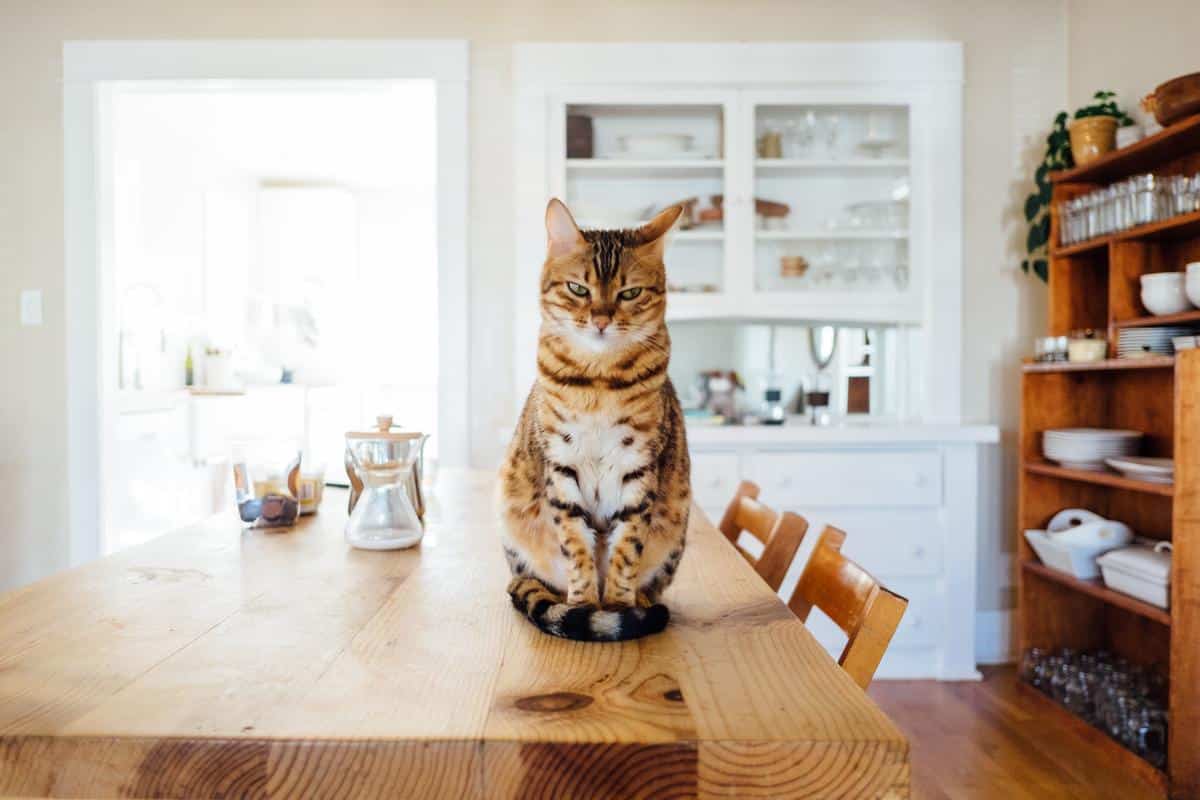
Owning a cat requires more than simply providing food and affection; it demands a comprehensive understanding of their needs, and this extends to the small, but decisive matter of cat litter. Ordinary cat litter may not always be available, affordable, or appropriate for one’s feline friend. Consequently, being knowledgeable about suitable alternatives can significantly enhance the pet ownership experience.
This discussion delves into a crucial elemental understanding of a cat’s litter needs, including the importance of absorbency and odor control. Furthermore, it explores common substitutes for cat litter, such as wood pellets, paper, sand, and soil, paving way for more sustainable and cost-effective strategies. Yet, at the heart of these alternatives lies the paramount factor of the cat’s health, warranting an in-depth assessment that ensures the chosen option is devoid of harmful chemicals or irritants.
Understanding Cat’s Litter Needs
Essential Elements Your Cat Expects from Its Litter
Great news, fellow parents! You’ve welcomed a furry feline into your home. The padded paws padding across the floor, the soft purring – it’s love at first sight. Family pets bring great joy and warmth into any home. But it’s not all glorious moments – sometimes things can get a little messy. You’d think the easy part should be the basics, like litter, but you’d be surprised. When you dive into the world of cat ownership, you’ll find that felines are extraordinarily particular about certain things, one of them being their litter. So, let’s dive in right away and help you set up the perfect toileting area for your beloved fur baby!
It may sound like a cat is just another member of the household but, wow, they can be so finicky! The right kind of litter is essential for your cat’s comfort and overall well-being. Heartfelt efforts are always essential to make our pets feel at home. Here are the factors your new feline friend is going to consider when choosing their ideal litter.
- Texture: Cats prefer a litter that is soft on their paws. They’ll appreciate a fine-grain litter material that resembles the texture of sand. A cat’s paws are sensitive, and a softer, fine-grained litter will make them feel comfortable as they dig.
- Odor Control: Cats have a heightened sense of smell, so finding a litter that can control the pungency of their business is key. Look for litter types that have activated carbon, baking soda, or other ingredients known for their odor-neutralizing capabilities.
- Dust-Free: Be mindful of dust levels in your chosen litter. Dust-related allergies aren’t exclusive to humans; our feline buddies can suffer too. High levels of dust in the cat litter can lead to respiratory issues.
- Clumping Qualities: Clumping is critical for easy and hygienic cleanup. Clumping litter, often made of bentonite clay, will form tight clumps around waste making it easier for you, dear reader, to scoop out.
- Biodegradable: There’s always room for consideration around environmental factors too. If you’re trying to keep the home green, as many of us are these days, there are plenty of biodegradable cat litter options that fit the bill perfectly without compromising on all the factors mentioned above.
- Unscented: While we might appreciate a fresh ocean breeze or lavender-scented litter, some cats may not. Artificial scents can sometimes be too overpowering for your cat’s sensitive nose.
Remember, dear reader, that a happy cat means a happy home. It may take some trial and error, but finding the perfect litter for your cat is important in maintaining a harmonious household.
So, those are our loo-related tips for your feline friend. Keep these pointers in mind, and you’ll set your pet up for a lifetime of comfort when nature calls. And that, friends, is paws-itively worthwhile!

Common Cat Litter Substitutes
Discovering Diverse Alternatives to Traditional Cat Litter
In your journey through cat parenthood, finding alternatives to conventional cat litter may not have crossed your mind. But switching to sustainable, cat-friendly solutions can create a huge difference not only in your life but also for your feline friend and the planet.
As an eco-conscious cat parent, it can be overwhelming and daunting to navigate alternatives to the standard clay-based litters but worry not – we’ve got you covered. Let’s explore some commonly embraced alternatives in the realm of cat care that might inspire you to take a fresh look at that litter box!
- Recycled Paper Litter: Here’s a sustainable choice made from recycled paper products, such as old newspapers, and is beneficial both as an eco-friendly alternative and as an option for cats that prefer a gentler texture under their paws. Plus, it’s 99% dust-free which can help keep those cat allergies at bay!
- Wood Pellets/ Sawdust Litter: Made from scrap wood or sawdust, this litter variant is not only biodegradable but also absorbs odor fairly well. This makes it an excellent choice for environmentally conscious households. Another bonus? It is usually unscented, a relief for those sensitive cat noses.
- Corn or Wheat-Based Litter: As a renewable resource, corn and wheat are also turned into cat litter. They are known for their natural clumping properties which can make cleanup a breeze. Additionally, these grains are excellent in controlling unpleasant odors.
- Grass Seed Litter: It might surprise you, but grass seed litters are a thing too. Lightweight and biodegradable, they have good odor control and easy-to-scoop clumping abilities, characteristics most cat parents would appreciate.
- Walnut Shells Litter: Walnut shells, crushed to form a granular texture, can also serve as fabulous cat litter. They are biodegradable and boast superior odor control. This type of litter also clumps nicely, making it a reliable choice.
While each of these options has its unique benefits, you must remember, that the final say should always be your furry friend’s. Every feline is unique in their preferences; some might adore the wood pellet texture while others might lean towards the softer grass seed feel. Experimenting with small quantities can gradually help you discover which litter suits your cat’s tastes best.
Switching the litter can be more than just meeting your cat’s personal and health needs. It can also be a step towards a more harmonious household and a greener lifestyle. With this newfound knowledge, we hope it empowers you to make an informed choice, creating a happy, comfortable, and eco-friendly environment for you and your cat. Happy cat parenting, dear community!

Safeguarding Cat’s Health
Finding the Perfect Substitute Cat Litter for Your Feline Friend
In our quest to care for our lovable feline companions, it’s possible we might find ourselves in situations where our trusted brand of cat litter is out of stock or we might simply be searching for more eco-friendly alternatives. Don’t fret! There are numerous substitutes out there that can serve well, provided we ensure their safety. Let’s explore these alternatives together.
Starting with Recycled Paper Litter: You might wonder if this is safe! Absolutely, it is – when a reliable brand is chosen. This type of litter is usually made from newspaper and it is great for our little companions who’d had recent surgery as it’s soft and non-abrasive. However, keep in mind, that they don’t control the odor as effectively as some other types. Ensure they have been processed to remove inks and chemicals and don’t turn into a sticky mess when wet.
Next, we have Wood Pellets or Sawdust Litter: This cheap and eco-friendly alternative is made from compressed sawdust. It’s highly absorbent and offers good odor control. It also turns into sawdust when wet, hence easy to know when to change it. But, always select litters made from untreated wood to avoid harmful chemicals.
Corn or Wheat-Based Litters, too, have become quite popular. They can be flushed down the toilet and are biodegradable, making them an eco-friendly choice as well. However, ensure your cat isn’t allergic to corn or wheat before making the switch, and the product is free of fungal contaminants.
Grass Seed Litter is a great choice for sensitive cats because it’s dust-free and soft on their paws. It naturally clumps and is biodegradable. Just be certain it doesn’t contain any potentially harmful additives and there’s no chance your cat might ingest the litter, especially if they are younger.
Lastly, Walnut Shells Litter, made from crushed walnut shells, boasts excellent odor control and solid clumping qualities. It’s good for Earth and great for felines! However, we recommend buying litter made from black walnut shells, not English walnut shells which are toxic to pets.
In conclusion, opting for substitute cat litters isn’t difficult, but it does require a bit of research to ensure safety and comfort for your adorable feline friend. Every cat is unique and what works well for one might not work the best for another. Consider both your lifestyle and your cat’s preferences when choosing. Don’t forget to introduce the new litter gradually to allow your cat to adjust to the change. Here’s a warm pat to all those feline lovers out there striving to make the best choices for their furry family members!

After weighing factors like absorbency, odor control, cost-effectiveness, and notably, your cat’s health, it should now be clearer to determine whether an alternative to traditional cat litter can meet your expectations. Alternatives like wood pellets, paper, sand, and soil can serve effectively, provided they do not contain any harmful agents and don’t distress your cat. The transition from one type of litter to another should always be gradual, carefully observing the cat’s reception to the new litter. By making an informed choice built on understanding your cat’s litter needs and health, you can indeed pave the way towards a healthier and happier environment for your feline companion.





